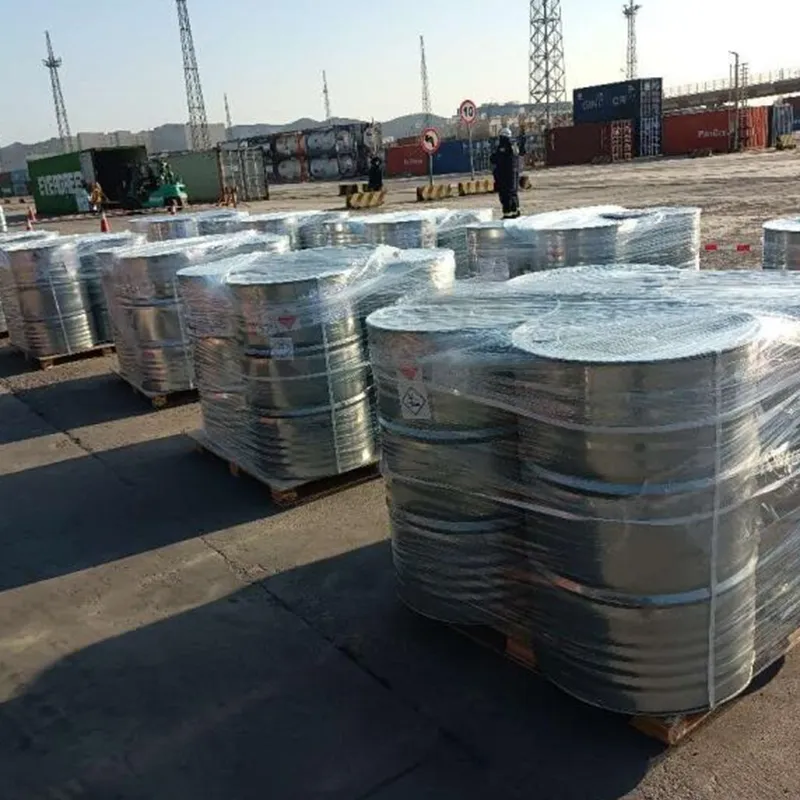
Benefits of Using Potassium Humate Fertilizer for Enhanced Plant Growth and Soil Health
Potassium Humate Fertilizer Unlocking Soil Health and Plant Growth
In the world of agriculture, the quest for sustainable and efficient fertilizers has led to the increased use of organic compounds that promote soil health and enhance plant growth. One such compound that has gained significant attention in recent years is potassium humate. Derived from lignite, potassium humate is a natural organic matter that encompasses humic substances. It serves as a powerful soil enhancer and fertilizer, replete with benefits that can revolutionize farming practices.
Understanding Potassium Humate
Potassium humate is a potassium-rich compound that consists of humic and fulvic acids. These acids are critical organic components formed during the decomposition of organic matter. In its natural state, potassium humate is dark brown or black in color and has an ability to retain moisture, which is an essential factor for optimal plant growth.
One of the key components, potassium, is an essential macronutrient that plays a vital role in various physiological processes in plants. It helps in photosynthesis, enzyme activation, and the maintenance of osmotic pressure. When combined with humic acids, potassium humate enhances the availability and efficiency of potassium for plants, promoting better root development and increased resistance to environmental stresses.
Benefits of Using Potassium Humate Fertilizer
1. Improved Soil Structure One of the significant advantages of potassium humate is its ability to improve soil structure. By increasing the aggregation of soil particles, potassium humate enhances aeration and drainage, which are crucial for healthy root development. A well-aerated soil fosters beneficial microbial activity, resulting in a more balanced ecosystem that promotes plant growth.
potassium humate fertilizer

2. Enhanced Nutrient Uptake Potassium humate acts as a natural chelator, helping to bind essential nutrients in the soil and making them more available to plants. By improving nutrient uptake, it allows crops to thrive and reach their full potential. This leads to enhanced yields and better quality produce, which is vital for feeding a growing global population.
3. Increased Soil Moisture Retention The water-retaining properties of potassium humate are particularly important in regions prone to drought. Its capacity to absorb and hold moisture helps maintain adequate hydration levels in the soil, reducing the need for frequent irrigation. This not only conserves water but also promotes more resilient crop growth during dry spells.
4. Environmental Benefits The use of potassium humate fertilizer aligns with sustainable farming practices. Unlike synthetic fertilizers, which can lead to soil degradation and water pollution, potassium humate enhances the natural fertility of the soil. Its application can reduce the reliance on chemical fertilizers, limiting harmful runoff into waterways.
5. Versatility Potassium humate is suitable for a variety of crops, including vegetables, fruits, and ornamental plants. It can be used in different forms, such as granules, powders, or liquid solutions, making it easy to integrate into existing farming practices. This versatility allows farmers to compound its benefits across various agricultural sectors.
Conclusion
Potassium humate fertilizer emerges as a powerful tool for contemporary agriculture, addressing the challenges of soil health and nutrient management. Its multifunctional benefits extend beyond mere nutrient supply, promoting sustainable farming practices that protect the environment while enhancing crop productivity. As the agricultural sector continues to evolve, the adoption of potassium humate may very well be a key to unlocking a more sustainable and productive future in farming. By investing in this natural resource, farmers can cultivate healthier soil and crops, ultimately contributing to food security and environmental stewardship.
-
Why Glacial Acetic Acid Food Grade Is Essential in FlavorNewsMay.26,2025
-
Surging Export Growth of Food Additives in ChinaNewsMay.26,2025
-
How Ammonium Nitrate Fertilizer Boosts Crop YieldsNewsMay.26,2025
-
How 1,2,3-Benzotriazole Shields Plastics from UV DegradationNewsMay.26,2025
-
Cyanide in Gold Mining: Protecting People and the PlanetNewsMay.26,2025
-
Aluminum Hydroxide in Modern Sunscreen FormulationsNewsMay.26,2025
-
Understanding Synthetic Rubber OptionsNewsApr.27,2025
Hebei Tenger Chemical Technology Co., Ltd. focuses on the chemical industry and is committed to the export service of chemical raw materials.
-

view more DiethanolisopropanolamineIn the ever-growing field of chemical solutions, diethanolisopropanolamine (DEIPA) stands out as a versatile and important compound. Due to its unique chemical structure and properties, DEIPA is of interest to various industries including construction, personal care, and agriculture. -

view more TriisopropanolamineTriisopropanolamine (TIPA) alkanol amine substance, is a kind of alcohol amine compound with amino and alcohol hydroxyl, and because of its molecules contains both amino and hydroxyl. -

view more Tetramethyl Thiuram DisulfideTetramethyl thiuram disulfide, also known as TMTD, is a white to light-yellow powder with a distinct sulfur-like odor. It is soluble in organic solvents such as benzene, acetone, and ethyl acetate, making it highly versatile for use in different formulations. TMTD is known for its excellent vulcanization acceleration properties, which makes it a key ingredient in the production of rubber products. Additionally, it acts as an effective fungicide and bactericide, making it valuable in agricultural applications. Its high purity and stability ensure consistent performance, making it a preferred choice for manufacturers across various industries.











